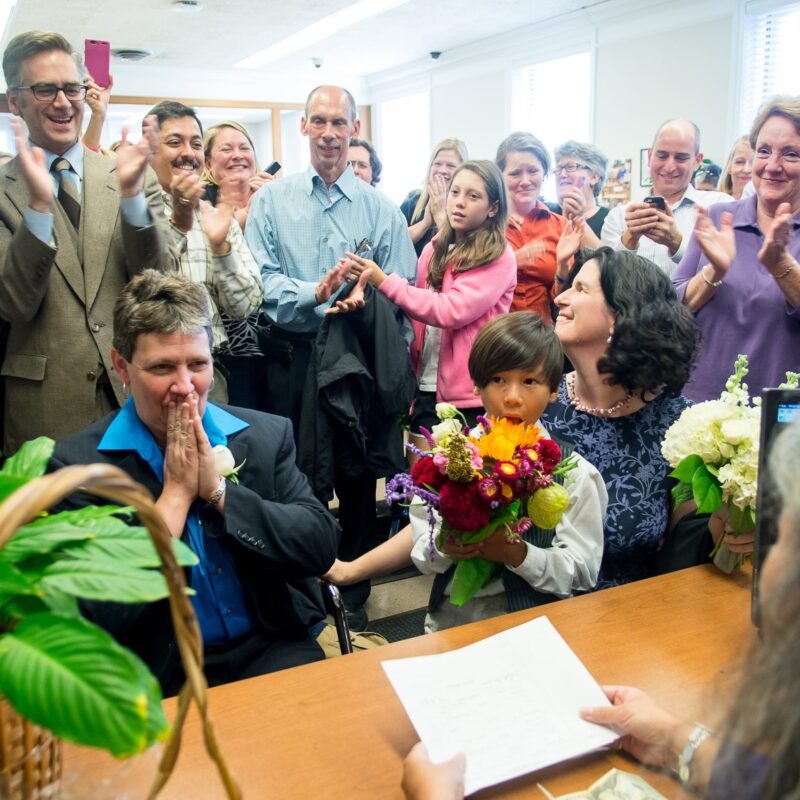“I like my job here at UVA,” Brad Sayler, an outspoken employee in the civil engineering department, told the large crowd assembled in Newcomb Hall. “I just don’t like the way employees get treated around here a lot of the time.”
The crowd had gathered for a “town hall” that was both an overview of restructuring as well as a look at the results from a staff survey. Assembled was a mix of employees—some clad in the dressy office wear of admin assistants, some in the uniforms of maintenance crews—many with notepads at the ready.

Susan Carkeek, vice president of HR, told staff her office is working to improve its communication and transparency.
|
What brought them out was the new employment system that the University is putting together, another facet of what’s called restructuring—the new deal that the University worked out with the state for increased autonomy.
Old employees can opt to either remain in the state human resources system, or join a new HR system that UVA has yet to unveil. New employees as of July 2006 are automatically part of the new system, even though they don’t know what that system is, having signed a “blank check,” in the words of Susan Carkeek, UVA’s vice president of HR. Carkeek plans to unveil a draft of the new system in the spring of 2008.
“Traditionally, unions have fought against two-tier systems for a hundred years,” says Jan Cornell, president of the Staff Union at UVA. “Not everybody’s on the same playing field. It causes friction in the system.” She cautions employees in the state system not to switch to the new system even when it is designed, because once they do, they can’t switch back. “The bottom line is that UVA wants to save money on their labor costs.”
The staff survey, conducted by the UVA Center for Survey Research, was designed to get input for the new system. Some of the data from the 49 percent of classified staff who responded: While three-quarters would recommend UVA as a place to work, two-thirds think that University pay isn’t comparable to outside pay, and 71 percent think they need a new job to get a raise. Ninety percent are in favor of performance-related pay. About two-thirds like the HR system the way it is.
During the Q&A session, few spoke—and who could blame employees for not speaking up since Dena Bowers was fired in 2005 shortly after sending out an e-mail critical of restructuring? But Sayler wasn’t completely alone. A woman who works in facilities also stepped up to the mic. She expressed concern over performance evaluations: “I love this place, and I’ll be here for the next 30 years—for facilities. …But why is it up to the supervisor’s discretion?”
Carkeek acknowledged that UVA—and her office in particular—hasn’t always done a stellar job communicating with classified staff.
“We got a lot of comments about the lack of customer service provided by the HR,” said Carkeek. “And for me, as a new person coming in, it was important for me to hear. It hit pretty hard in the gut, but you were pretty candid in the survey and I have to thank you for that. Things like, please just answer your phone. …Those are things we can do with no policy changes.”
During his comments, Sayler told her: “Trust is the big issue for me here at UVA. …What is HR doing to make its policies more transparent and to develop a human resources system that is deserving of our trust?”
Without plans to present, Carkeek gave the answer she could: “This is step one. We’ve got to start somewhere. Let’s start here.”
C-VILLE welcomes news tips from readers. Send them to news@c-ville.com.





